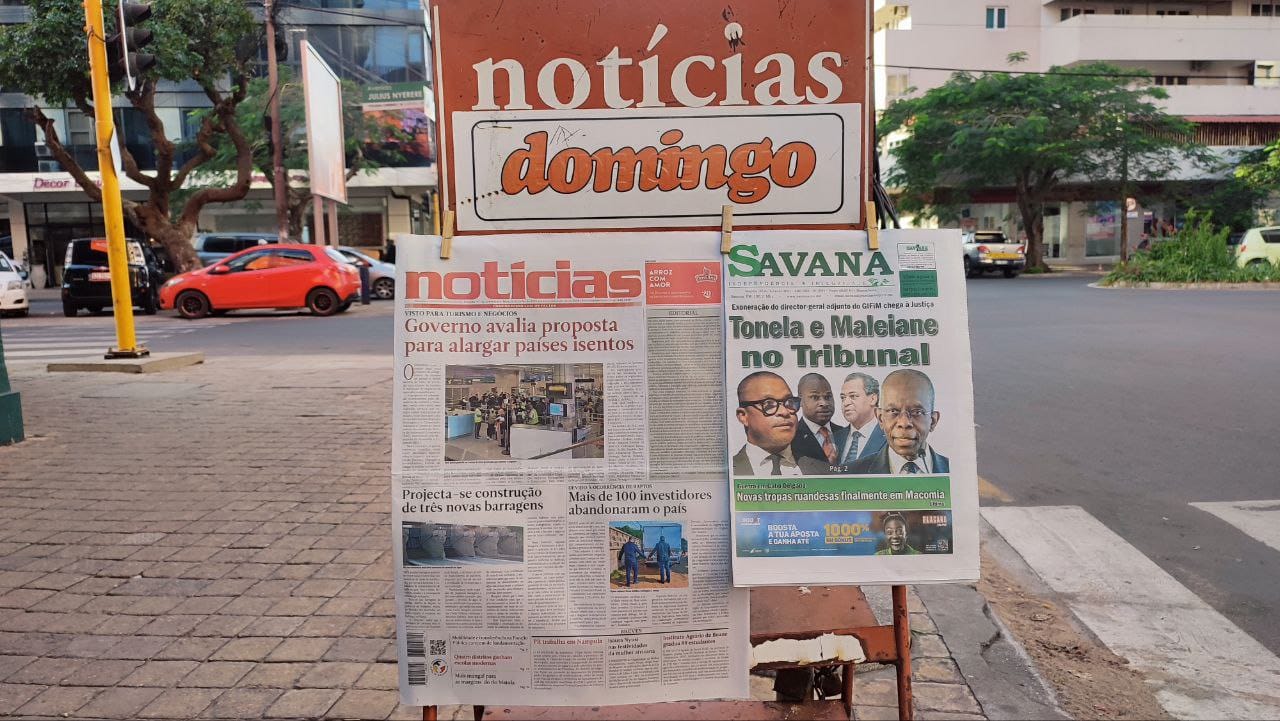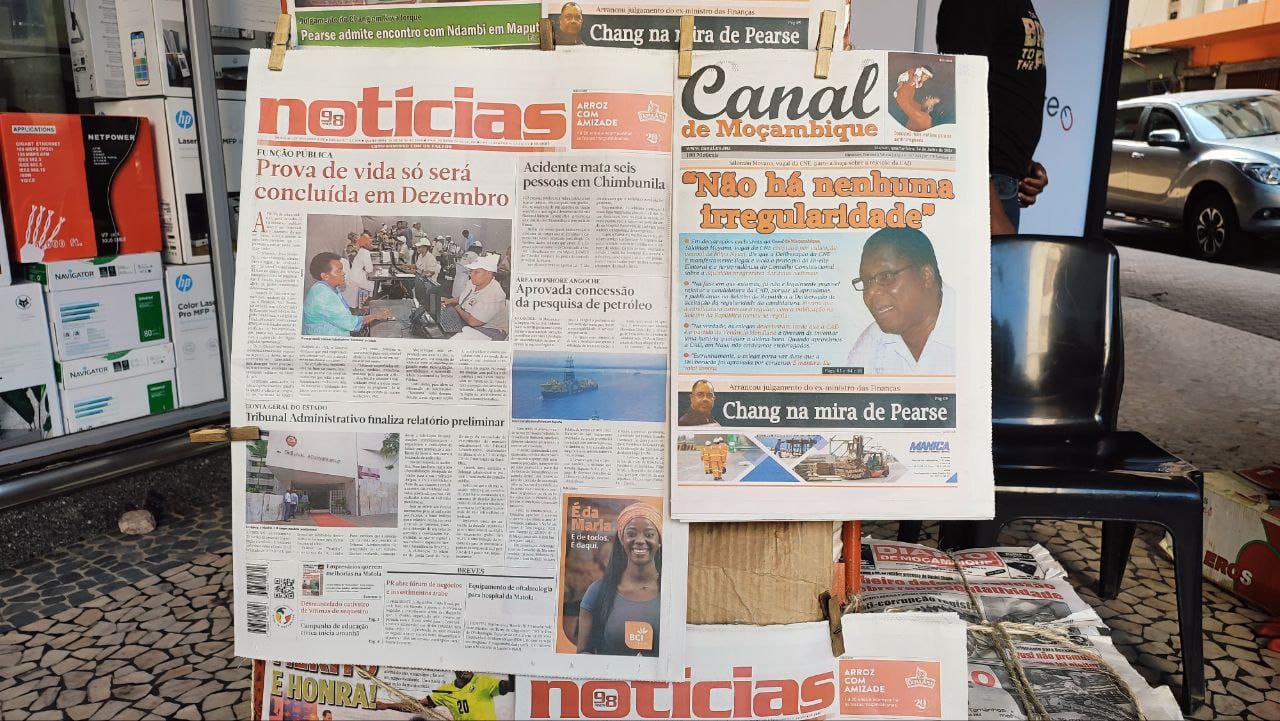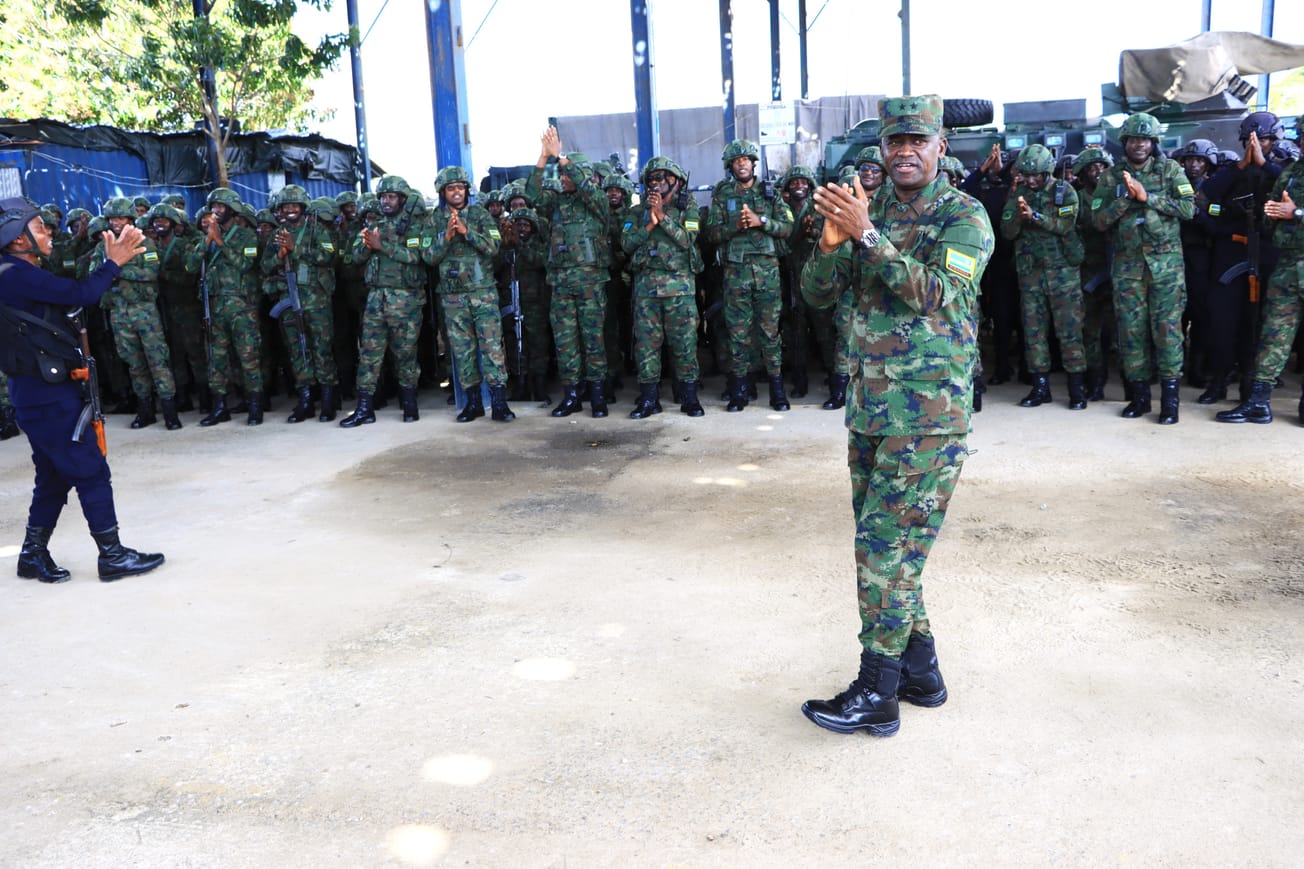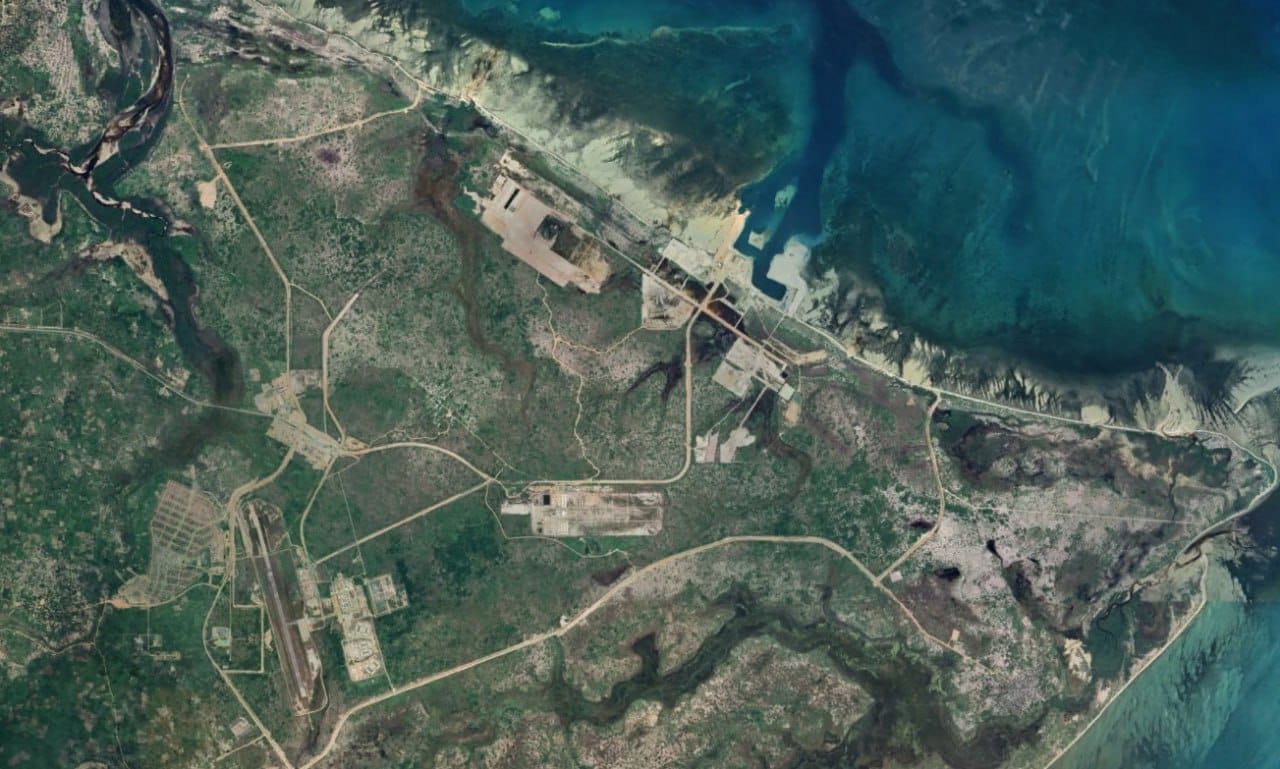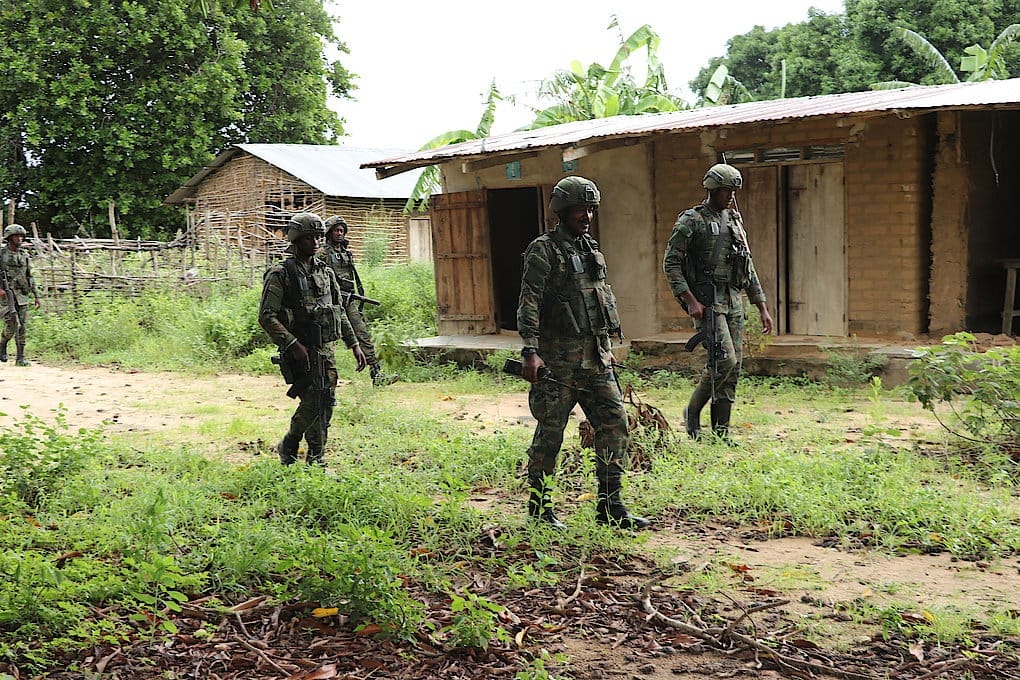NOTICE: The Zitamar Daily Briefing now has a sister publication — the Angola Economic Briefing. Click here to find updates, analysis, and forecasts on Angola’s economic and political developments, twice a week.
Agenda:
- Today-Friday: Mozambique hosts virtual meeting of Southern African Development Community, during which it assumes the rotating presidency of the regional bloc
- Today: Tribute to Carlos Cardoso, journalist assassinated in 2000, who would have turned 69 today. His colleagues at publishing house Mediacoop remember the first editor of Mediafax by naming their newsroom after him
- Tomorrow: Council of Ministers’ weekly meeting
From the Zitamar Live Blog:
Follow on Telegram or on our website
Covid-19 cases rise by 56 over weekend
A further 93 cases were announced on Friday, the highest daily figure yet, and the latest victim died on Saturday
The best of the rest / Today’s headlines:
- Child killed in another bus shooting in Sofala (VOA)
- Mozambican company confirms it ordered Beirut explosives (Lusa, Savana, mediaFAX)
- Mozambique to ban use of plastic bags from 2021 (O País)
- Police training instructors impregnated 15 trainees (O País)
- Auditor says Bank of Mozambique has not correctly accounted for its pension fund (Lusa, mediaFAX)
- Construction work on Save river bridge to resume in late September (Rádio Moçambique)
- Teachers in Cabo Delgado complain of being excluded from humanitarian aid (DW)
- Russia to build military base in Mozambique as part of Africa strategy (Bild via Daily Sabah)

Child killed in another bus shooting in Sofala (VOA)
A child was killed and three people were seriously injured on Friday in an attack on a bus in Chibabava district in Sofala province. The vehicle was travelling from Maputo to Nampula when it was hit at about 6am, between the Casa-Nova and Mutamira stops, on highway EN1. The incident occurred in an area without a history of ambushes, but a few kilometres from Mutindiri, where there are frequent reports of attacks by the self-proclaimed Renamo Military Junta, led by Mariano Nhongo. Meanwhile, the six people accused of conspiracy against state security, for allegedly being involved with the Military Junta, will hear the verdict in their court case on 8 September.
The attack took place as the first anniversary was being commemorated of the peace deal between the government and opposition party Renamo, signed by President Filipe Nyusi and Renamo's leader, Ossufo Momade, who is rejected by the Renamo Military Junta.
Mozambican company confirms it ordered Beirut explosives (Lusa, Savana, Mediafax)
The Portuguese parent company of Fábrica de Explosivos de Moçambique (FEM) has confirmed that FEM ordered the 2.7 tonnes [in fact, 2,700 tonnes] of ammonium nitrate that got stuck at Beirut port in 2014 until it exploded last Tuesday, killing at least 158 and destroying a large part of the Lebanese capital. The commodity — used in fertiliser and, in this case, explosives — was ordered from Georgian company Savaro, which sent another shipment to replace the one that got stuck in Beirut. FEM said it had not paid upfront for the shipment, which had reportedly been paid for by Mozambican bank Bim on FEM’s behalf. FEM supplies explosives to Brazilian company Vale’s coal mines in Moatize, Savana reported on Friday.
The Mozambican angle to this story is interesting but that’s probably as far as it goes. It is hard to see how FEM, or the Port of Beira, could be held in any way responsible for what happened in Beirut. It is to be hoped that Mozambique stores ammonium nitrate in a more responsible manner than Lebanon did, and presumably the accident is leading authorities worldwide to review the safety of their stocks of the substance. Unconfirmed reports suggest the Mueda quarry in Cabo Delgado is using explosives provided by FEM, an area where insurgents are operating.
Mozambique to ban use of plastic bags from 2021 (O País)
The Ministry of Land and Environment is drafting regulations to ban the use of plastic bags in Mozambique from 2021. “This is a measure aligned with the national and international commitments that the government of Mozambique has assumed, embodied in the [United Nations’] Sustainable Development Goals and the government's five-year programme, aiming at strengthening the management and control of the plastic bag,” minister Ivete Maibasse said at the opening of the first National Council for Sustainable Development.
Regulations banning the use of flimsy plastic bags came into force in on 5 February 2016 and meant that the manufacture of bags from plastic thinner than 30 micrometres would be punished with a fine of 40 monthly minimum salaries, according to the law – around 128,000 meticais, or $2,840. Retailers are also now required to ask customers if they want a plastic bag, and to charge them for it separately if they do. The fine for not doing this is 30 minimum salaries, or $2,130. However, few retailers do this in practice and plastic bags are still widely used in Mozambique. Hopefully this new law will be more strictly enforced.
Police training instructors impregnated 15 trainees (O País)
Fifteen trainees from the Matalana Police Practical School in Maputo province have been made pregnant by their instructors. The Ministry of the Interior wanted to manage the issue internally without making it public, according to O País, but it came to light after a dispatch from the police commander-general's office was circulated. Commander-general Bernardino Rafael subsequently suspended the respective instructors and dismissed the pregnant students, on condition that they return to the next training course. However, Nazário Muananbane, president of the Mozambican Police Association, is now demanding that the police general command make a public statement on the matter, “so as not to allow misinterpretations about the Matalana centre, where it could be thought that people go there and learn deviant things.”
At the beginning of his first term, Nyusi promised to clean up the corrupt police force. Six years later, with police accused of human rights abuses in Cabo Delgado and the assassination of a civil rights activist, yet another story emerges of a shameful lack of ethics and discipline within the force. It is depressingly common for teachers to impregnate pupils in Mozambique – and they are rarely punished for these sexual assaults, even when pupils are underage. The fact that this behaviour is also rife within police training centres shows how deeply ingrained and accepted this kind of sexism is — and how hard it will be to overcome. Some studies show that as male dominance over women and girls is an accepted social norm in many areas of Mozambique, sexual harassment in educational instituions is often not seen by victims as abuse, and in fact can sometimes be seen as a form of favouritism.
Government propagandist Egidio Vaz rushed to condemn the women for getting pregnant, saying the fact that the women gave into this “sexual corruption” means they should be dismissed from the police force, because they could submit to other forms of corruption as well. Vaz has denied being behind the Notícias de Defesa website, which sings the praises of the police and military, but this latest disgrace suggests his current focus is to defend whatever the police get up to.
Auditor says Bank of Mozambique has not correctly accounted for its pension fund (Lusa, Mediafax)
An independent audit report of the Bank of Mozambique says that the 2018 financial statements the bank has published online do not meet international standards because it did not consolidate the financial statements of its subsidiary Kuhanha, the bank’s pension fund manager. “The individual and consolidated financial statements do not adequately present the financial position of the bank and its subsidiaries,” said auditor PwC. “The consolidation of Kuhanha would have material impacts on many elements of these financial statements”, it pointed out, adding that “the effects of this non-consolidation have not been determined”. In remarks published with the statements, the bank’s management claimed that “there is no relevant economic sense that justifies the consolidation” of Kuhanha. Previous auditor KPMG took the same position in relation to the bank’s 2017 accounts, when Kuhanha acquired a majority position in Moza Banco, one of the main commercial banks in Mozambique. In the statements released on Friday, the bank said that the 59.4% stake its pension fund held in Moza Banco did not reach the two-thirds necessary to “make structural decisions”, so therefore its accounts did not need to be consolidated.
The Bank of Mozambique is facing ongoing and growing criticisms over its failure to publish accounts on time, and over the question of its ownership of Moza Banco through Kuhanha. It should be providing an example for the rest of Mozambique’s financial sector to follow, not bending the rules for itself whenever it suits it.
Construction work on Save river bridge to resume in late September (Rádio
Moçambique)
Rehabilitation works of the bridge over the Save river and the construction of a new bridge may resume in late September, as some measures to prevent the spread of covid-19 are relaxed. Started in 2018, the works suffered a partial halt in December 2019, when the covid-19 pandemic broke out. The delegate of the National Road Administration in Inhambane, Elcídio Parruque, says that despite this situation, the Save river can be safely crossed by the temporary bridge.
The fact that it was the outbreak of covid-19 in December 2019 that led to the halt of the works demonstrates how heavily Mozambique relies on Chinese workers to complete the construction of its road and bridge projects. Parts of China may have been in lockdown in December 2019, but Mozambique didn’t enforce any covid-19 restrictions until the beginning of April 2020.
Teachers in Cabo Delgado complain of being excluded from humanitarian aid (DW)
About 500 teachers in Cabo Delgado province, who have left their schools because of insurgent attacks there, are complaining of being excluded from services offered to refugees, supposedly because, unlike other displaced people, they receive salaries from the state. “We are not doing well, because we are isolated from the distribution of donations. Now that we have lost everything we had there, we are trying to get back on our feet with the salary we have. We left there with only the clothes on our bodies,” a teacher said during a meeting with the provincial governor, Valigy Tauabo. The teachers, who have taken refuge in the provincial capital Pemba, also asked to be placed in schools in areas where they had been displaced, promising to return to their home districts as soon as conditions allowed. Tauabo said that studies were ongoing to consider how to put teachers to work.
Russia to build military base in Mozambique as part of Africa strategy (Bild via Daily Sabah)
Russia plans to build military bases in six African countries, including one in Mozambique, as part of a new Africa strategy, the Daily Sabah reports, citing a report in German newspaper Bild last Tuesday, which in turn cites a secret German foreign ministry report. The document says that military cooperation is an important part of this strategy, adding: “Since 2015, Russia has concluded military cooperation agreements with 21 countries in Africa”, compared to only having four such treaties before. The Russian government is “contractually assured” it has the right to build bases in six countries, the report goes on. They are the Central African Republic, Egypt, Eritrea, Madagascar, Mozambique and Sudan. In addition, the Russians are involved in training African armies, and are also using private armies or proxy groups like security firm Wagner Group, which ministry experts called a “hybrid instrument to exert political, economic and military influence”. The report warns that Russian troops could be used by autocratic regimes against their own people.
Wagner Group has been widely reported to have been involved in the Cabo Delgado conflict last year, in support of the Mozambican military, but to have withdrawn after suffering losses. Nevertheless, Russian cooperation with Mozambique is deepening, and a base in Mozambique would be attractive to any major world power; both Russia and the US are believed to have been eyeing the deep sea bay of Nacala for some years.
Company Announcements
- The Bank of Mozambique published its financial statements for 2018 (see here and above)

